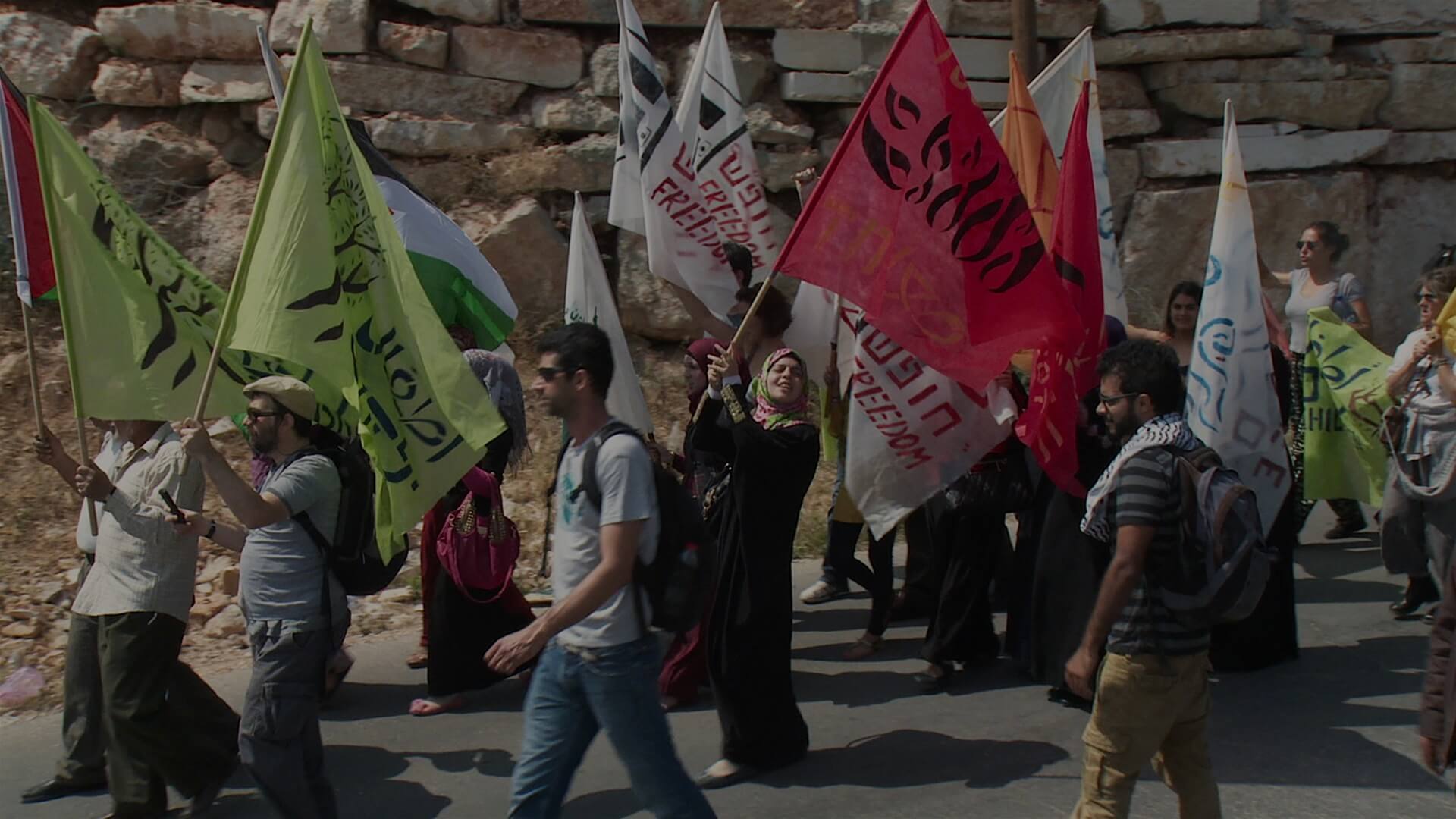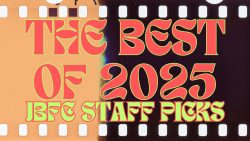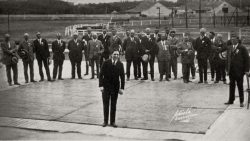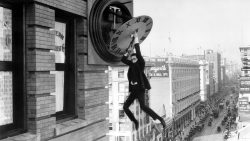Posted November 7, 2016
JBFC Founder Stephen Apkon is Disturbing the Peace
JBFC Founder Stephen Apkon’s new film, Disturbing the Peace, opens Thursday, Nov. 17 at the Burns as a Westchester Exclusive and we’re incredibly excited to have him back in Pleasantville. JBFC Programming Director Brian Ackerman recently sat down with Steve to discuss his new documentary and what returning to the Burns community means to him. Read their conversation below and get your tickets to Disturbing the Peace today!
Brian Ackerman: How did you find these extraordinary characters for Disturbing the Peace?
Stephen Apkon: Andy Young and I went on a “listening tour,” meeting people in the region from all over the political spectrum, and felt that there was nothing really new to say about the Conflict until we met the Combatants for Peace. They represented a different reality as the only group of enemy combatants in the world working together through nonviolence. I remember asking them at our first meeting what the organization was about and Chen (one of the subjects in the film) responded: “We’re a community of people taking responsibility for our own creation.” It was that moment where I realized this was a story worth telling.
BA: The subjects in Disturbing the Peace have really put themselves forward and taken enormous risks in this film, and in this organization. Can you talk about that and what that means?
SA: The courage and quiet heroism they show in their daily work to confront their own societies and work together is extraordinary. They do take risks as many in their societies and governments have different ideas, but they also have credibility in their communities because of their background as fighters.
BA: Did the process of making this film challenge your feelings about Israel? Did it change them?
SA: This was a very personal film in many ways, as it asked me to do my own work of looking at the stories and narrative I grew up with and understood—about the region and about myself. And through it my sense of connection to the place and people only deepened.
BA: Disturbing the Peace is different than many films on the Middle East, and it’s generated an enormous amount of response on the festival circuit. Can you give us a sense of that? Is there a pattern to the responses?
SA: You can never be sure how any film is going to be received by audiences, let alone a film on the Middle East. It has actually been overwhelming to experience the response as we have traveled to different festivals around the world. What I believe is that they are not just connecting to the film, but to a real longing that exists in all of us, which is a “knowing” that there is another way to the divisiveness and polarization we seem to have created in the world.
BA: What was the biggest obstacle to making this film?
SA: The biggest challenge was to make a film that doesn’t have a typical “Hollywood structure” of heroes and villains. Not only are the movies we consume constructed in this dramatic way, it is often how we experience life. To create an experience where that is transcended was a risk as to whether it could be accomplished and still hold an audience’s interest. It seems to have worked which is tremendously gratifying.
BA: Where do you want to see the film go at this point? What are you hoping for it?
SA: The film premiered at the Jerusalem Film Festival, and a week later played on the Separation Wall itself, to an audience of Israelis and Palestinians sitting together honoring their suffering and envisioning a different future—it was thrilling! After many festivals, we are opening in NYC on November 11, and LA a week later, with other cities to follow. There’s also a lot of interest worldwide in the film and we look forward to expanding the conversation internationally. But right now I am as excited about coming home to the Jacob Burns and sharing this film with our community as anything else!
BA: What is happening right now with some of the subjects in the film, bringing us into today—(if there are interesting things to report)?
SA: The movement is growing as is their voice. They have increased their joint nonviolent activities and are holding a monthly Freedom March which brings hundreds of Israelis and Palestinians together to say “There is another way.”
BA: What does it mean for you to bring this film back to the Jacob Burns community that you started? And to come back as a filmmaker?
SA: It is beyond thrilling! I never imagined more than 15 years ago when the JBFC was opening, that I’d be here in this capacity. I always knew how much filmmakers valued being invited by you, Brian, and the JBFC programming team, but now I really get it! I have learned SO much from the countless films and filmmakers who came to the Burns and it is such an honor to be returning in this way (of course in so many other ways I have never left as this will always be my home and community). I know this is true for Andy as well, who has been a longtime Westchester resident and core member of the JBFC community. I am so looking forward to continuing the “conversation” we all started so many years ago!
BA: Is there a particular Westchester message that we can take away from this film?
SA: I hope that people will come and embrace this film not just in relation to the Middle East, but how it applies to each of our lives—personally and collectively. Here in Westchester and beyond! We’re also going to have some very special guests with us from the film during the run at the JBFC and I hope to see everyone there!



